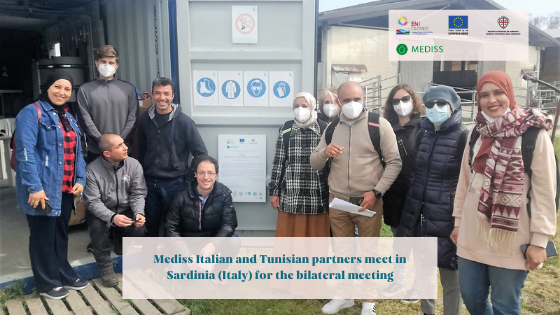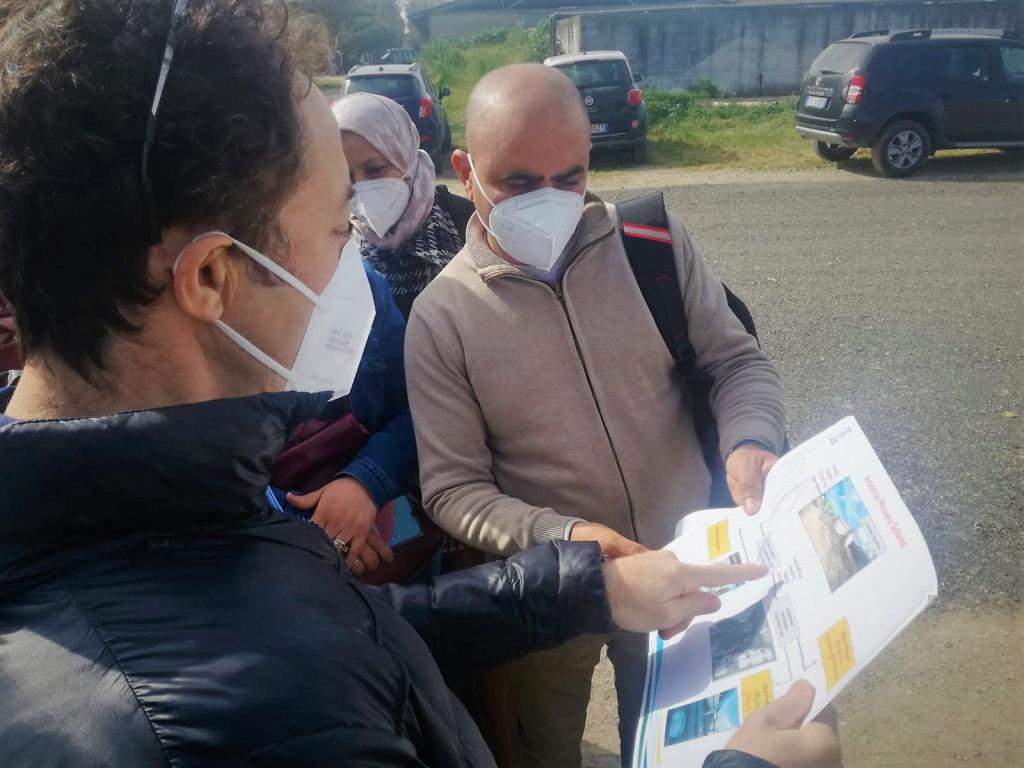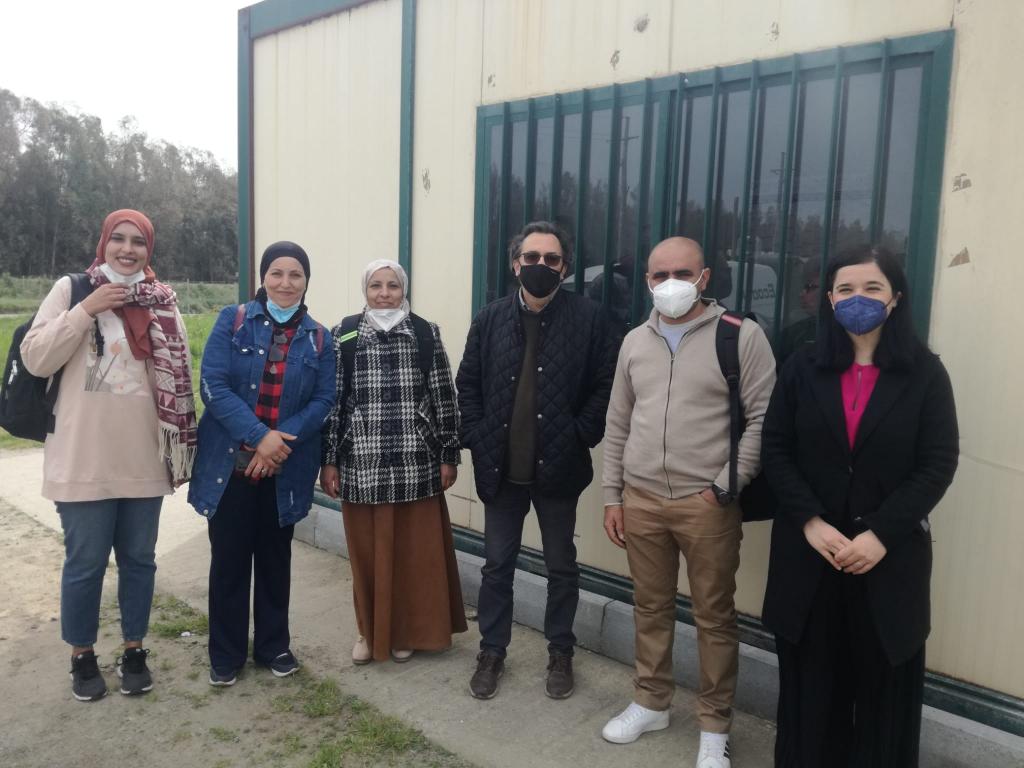MEDISS Italian and Tunisian partners meet in Sardinia (Italy) to participate in the bilateral meeting for updates of the two pilot plants and meet local communities

After a lengthy wait, the Italy-Tunisia bilateral meeting is finally under way.
It had been a year since the Italian and Tunisian Mediss partners had made numerous attempts to organize the bilateral meeting. Now finally, representatives of the Institut de Régions Arides de Médenine (IRA Médenine) have arrived in Cagliari to meet the Ente Acque della Sardegna - ENAS (Sardinia Water Board) and the Centre for North South Economic Research - CRENoS team and participate in the joint working sessions.
An important part of the bilateral meeting is carried out in Arborea, where the partners will have the opportunity to visit the pilot plant realised by ENAS, dedicated to ammonia stripping, which also includes the water and soil monitoring system through piezometers located in the pilot area identified by the MEDISS project.
The Tunisian partners will be able to deepen their knowledge of the operation and technical characteristics of the pilot plant, which aims to reuse sludge from livestock farms for the production of "clean" fertilizers, using advanced stripping technologies, in an area sensitive to the presence of nitrates in the groundwater. The pilot plant treats the digestate from the Cooperativa Produttori Arborea's zootechnical waste-to-energy plant. The product obtained is a fertilizer that is tested in the same pilot area, and its use monitored through soil and groundwater analyses.

Description of the Arborea pilot plant
The study visit to Arborea will include a meeting with local beneficiaries, in particular the Mayor of Arborea, Dr. Manuela Pintus, and the management and experts of the Cooperativa Produttori di Arborea, with whom they will examine the issue of policies to safeguard common goods such as water and soil and their impact on the local community and on business strategies, as well as issues related to climate change and its impact on economic systems based on intensive agriculture.

Ira Médenine staff (Tunisian partner) with the Mayor of Arborea Dr Manuela Pintus and Prof. Giovanni Sistu (CRENoS)
A part of the visit to Arborea will be dedicated to the wetland system and the hydraulic reclamation area, where the partners will be able to observe the critical areas of the nitrate vulnerable area and the critical relations between production activity and environment and the experiments in action to ensure the resilience of the Arborea system.









